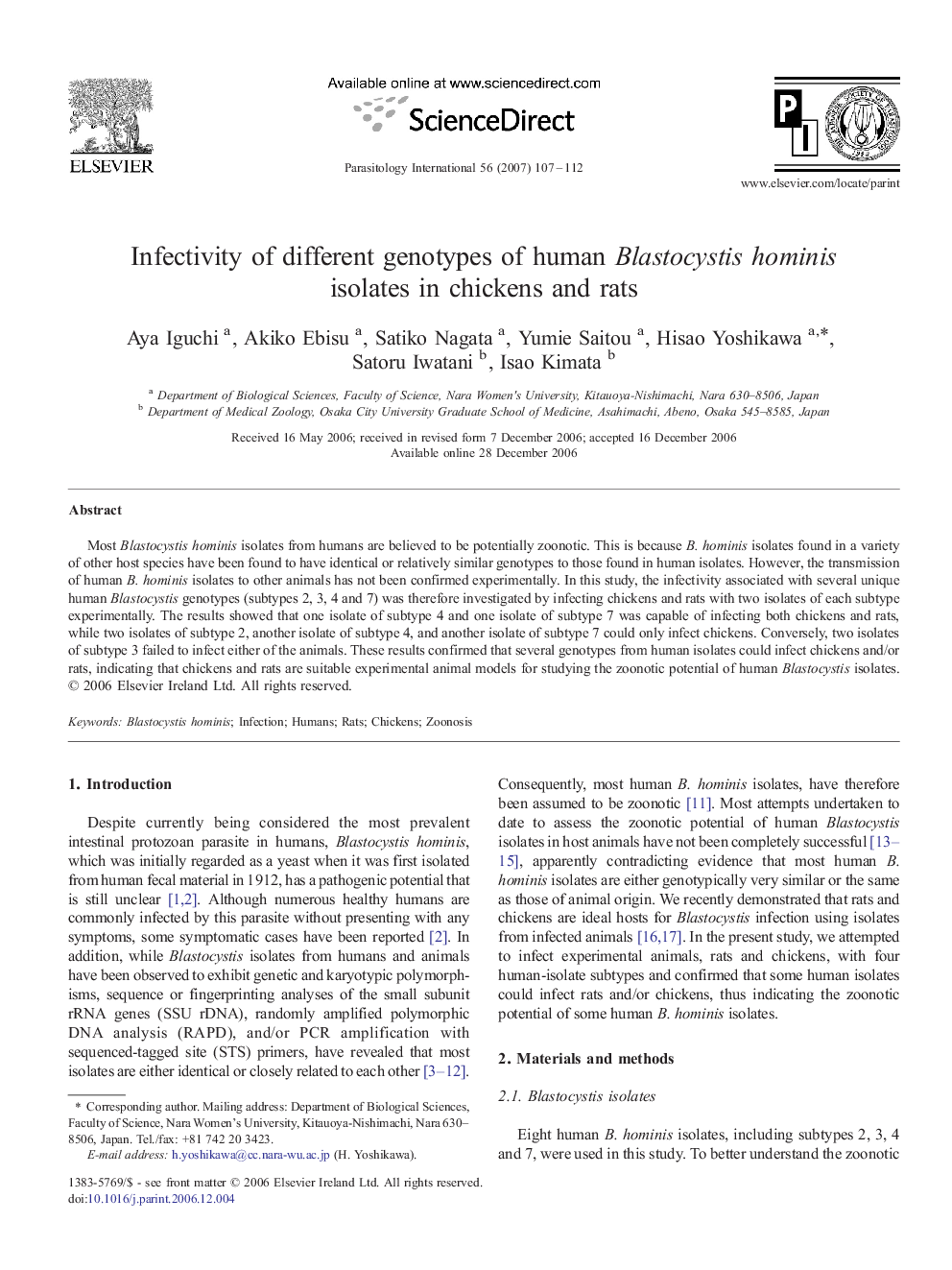| Article ID | Journal | Published Year | Pages | File Type |
|---|---|---|---|---|
| 3418242 | Parasitology International | 2007 | 6 Pages |
Most Blastocystis hominis isolates from humans are believed to be potentially zoonotic. This is because B. hominis isolates found in a variety of other host species have been found to have identical or relatively similar genotypes to those found in human isolates. However, the transmission of human B. hominis isolates to other animals has not been confirmed experimentally. In this study, the infectivity associated with several unique human Blastocystis genotypes (subtypes 2, 3, 4 and 7) was therefore investigated by infecting chickens and rats with two isolates of each subtype experimentally. The results showed that one isolate of subtype 4 and one isolate of subtype 7 was capable of infecting both chickens and rats, while two isolates of subtype 2, another isolate of subtype 4, and another isolate of subtype 7 could only infect chickens. Conversely, two isolates of subtype 3 failed to infect either of the animals. These results confirmed that several genotypes from human isolates could infect chickens and/or rats, indicating that chickens and rats are suitable experimental animal models for studying the zoonotic potential of human Blastocystis isolates.
